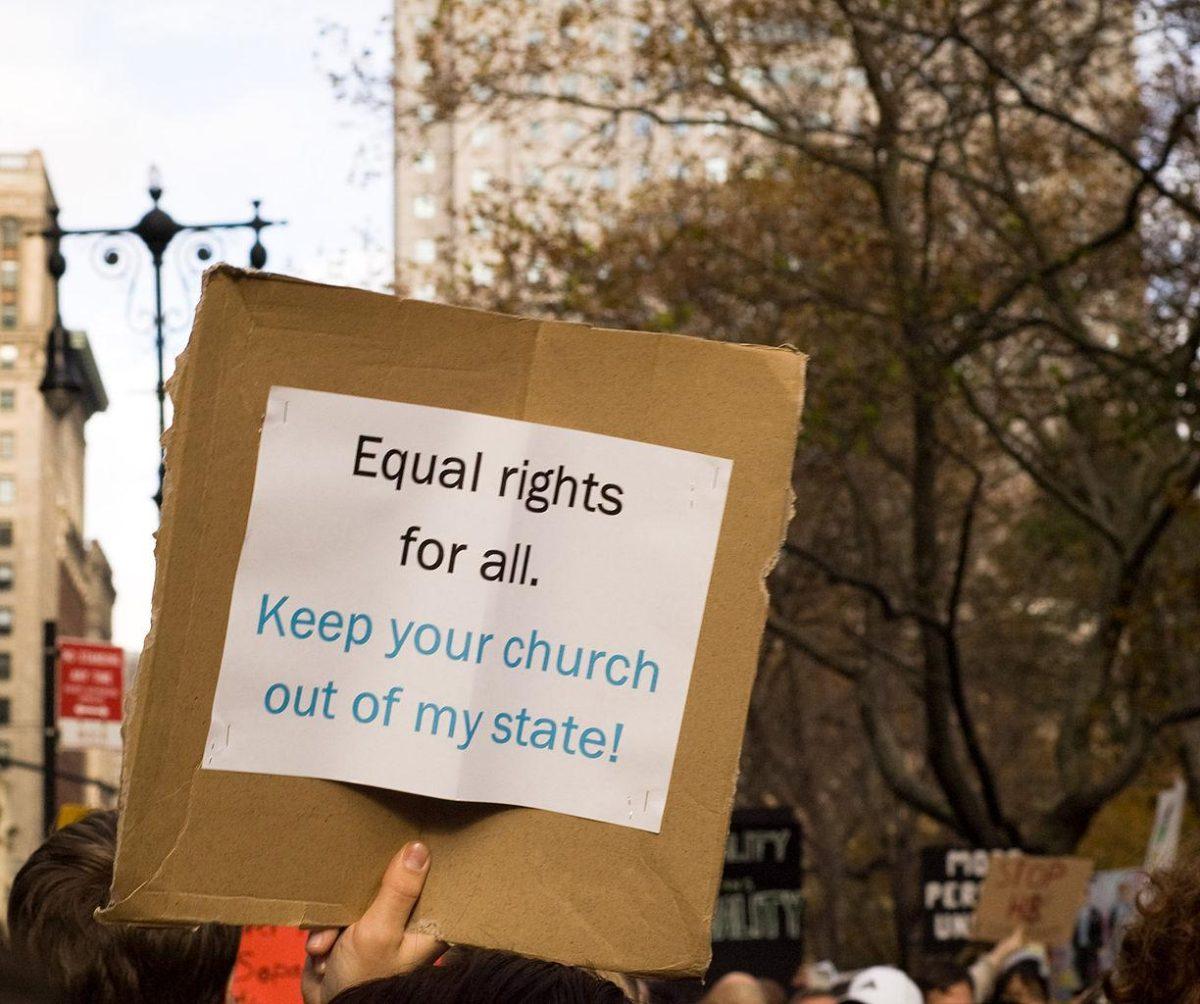President Donald Trump first vowed to destroy the Johnson Amendment on June 21, 2016. In a private meeting with Arkansas Gov. Mike Huckabee and a group of evangelical leaders, he said, “We are going to get rid of that, because you should have the right to speak.”
The Johnson Amendment is a 1954 federal law put in place by then-Sen. Lyndon B. Johnson. The law makes a nonprofit organization tax-exempt on the condition it remains politically neutral. Because the amendment is a part of the United States tax code, it would require congressional approval to repeal so Trump would not be able to act through an executive order.
Proponents of the law say it establishes an important distinction between politics and religion. Johnson Amendment supporters argue that taxpayers who provide money to religious causes should be able to do so freely without having to fund political opinions they may disagree with.
While organizations can opt to pay taxes in exchange for a religious voice, many say the Johnson Amendment violates the First Amendment right to free speech. The amendment does not specifically target religious organizations’ right to be politically active — it applies to all 501(c)(3) organizations — but religious groups have been vocal about repealing it.
While I keep my opinions far from Trump’s, we can agree on this: the Johnson Amendment should be repealed.
However, the Johnson Amendment shouldn’t be repealed because it violates free speech but because religious groups should not be tax exempt.
While religious organizations cannot explicitly state their preference for a candidate, they can be incredibly partisan. For example, they teach pro-life values, ensuring their congregation will not vote for a pro-choice candidate. How is that not an expression of a political view?
I’m not saying it is wrong for these groups to express political opinions. They do already, so why are they still exempt from taxes under the law?
The Johnson Amendment is also dangerous because it entangles church and state. It forces Congress to decide what qualifies as a religion and what groups can register as a religious organization under the umbrella of the law. In 1993, the IRS granted the Church of Scientology tax-exempt status. For years it had been a branded a “commercial enterprise” and received national outrage.
More importantly, not all religious organizations are nonprofits. Churches are a billion-dollar industry. According to an investigation by Reuters, the steadily growing Mormon Church earns upwards of $7 billion in donations from tithing: each church member paying 10 percent of his/her income to the church “freely.” Tithing is viewed as a commandment from God in the Mormon Church.
We have a big problem when religious leaders build million-dollar homes, fly in private planes and vacation in exotic locations while members of their flock struggle to feed their families.
The idea that religion is not political is a joke. Presidents have been saying “God Bless America” since our country’s inception. Political leaders host religious leaders, attend prayer breakfasts and use their Christian values as campaign slogans.
The President traditionally attends a National Prayer Breakfast the first Thursday of each February. In the past, the President has hosted the Pope, the Dalai Lama and six religious leaders attended the inauguration of President Trump.
There’s nothing in this country as political as religion, and we need to stop pretending otherwise.
Abbie Shull is a 23-year-old mass communication junior from St. Louis, Missouri.
Opinion: Johnson Amendment should be repealed, promotes entanglement of church and state
By Abbie Shull
March 10, 2017
The Johnson Amendment, passed in 1954, makes nonprofit organizations tax exempt if they are politically neutral.





